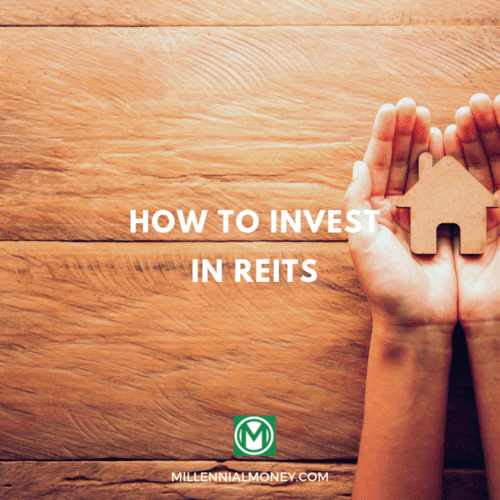Today, real estate investors have a world of opportunities to explore. The market is no longer closed off to everyday investors. You don’t have to be accredited to start raking in profits from commercial space.
One of the newer ways to invest in commercial real estate is by using a real estate crowdfunding platform. If you’re thinking about pursuing crowdfunding for real estate investment purposes, two leading platforms to consider are Fundrise and RealtyMogul.
Let’s explore how these two platforms compare to help you determine which one is the better option for your unique circumstances.
Fundrise vs RealtyMogul: Comparison Summary
| Fundrise | RealtyMogul | |
| Who Can Invest | Any investor | Accredited investors |
| Availability | All 50 states | All 50 states |
| Min. Investment | $10 | $5,000 |
| Management Fees | 0.15% annual advisor fee, 0.85% annual asset management fee | Dependent on REIT: Average of 1.0% to 1.25% asset management fee |
| Asset Classes | Managed portfolio of individual properties | REITs and individual properties |
| IRA Availability | Yes via self-directed IRA | Yes via self-directed IRA |
| Mobile App | Yes, for iOS devices | No (website is mobile friendly) |
| Customer Service | Great | Great |
| Security | Secure | Secure |
or, jump straight to our in-depth Fundrise vs. RealtyMogul comparison
Fundrise vs RealtyMogul: Overview
Fundrise
Fundrise is an online investment crowdfunding platform serving more than 100,000 active investors. It’s one of the oldest and most trusted crowdfunding platforms on the market.
Fundrise offers crowdfunding opportunities for both accredited and non-accredited investors, so you don’t have to be a high roller to get started on this platform. That said, you can still use this platform if you’re accredited.
RealtyMogul
RealtyMogul is one of Fundrise’s top competitors. It’s another long-standing crowdfunding provider with a solid reputation.
Just like Fundrise, RealtyMogul offers a crowdfunding platform that lets you buy into commercial real estate even if you’re a non accredited investor. Anyone can join RealtyMogul and start vetting real estate deals.
When you use RealtyMogul, you’ll invest in a real estate investment trust (REIT). RealtyMogul offers two of them: MogulREIT I and MogulREIT II.
The company also provides access to standalone properties, as well. Unfortunately, you have to be an accredited investor to access them.
Fundrise vs RealtyMogul: Pros & Cons
Pros and Cons of Fundrise
Pros
- Low minimum of $10
- Reasonable management fees
- 90-day introductory period without advisory fees or redemption penalties
- User-friendly website and convenient mobile app
- Secure investing
- Great customer service
- Automatic Investing
Cons:
- Illiquid investments
- Long-term investing only
- Tax liability due to income tax on earnings
Pros and Cons of RealtyMogul
Pros:
- Great user experience
- Withdraw or reinvest your earnings
- Secure platform
- Support for nonaccredited investors
- Automatic Investing
Cons:
- $5,000 minimum investment for REITs
- No app
- Only accredited investors can access standalone properties
- Variable fee structure
- Illiquid investments
Fundrise vs. RealtyMogul: Investment Options
Both RealtyMogul and Fundrise enable investors to access funds that contain a variety of commercial real estate opportunities.
The main difference is that RealtyMogul gives you more of a say in where your money goes — especially if you’re looking for standalone real estate investments.
RealtyMogul also makes it possible for accredited investors to access individual properties. To be considered an accredited investor, you have to make at least $200,000 annually over a two-year period and have a net worth of at least $1 million.
What are eREITs and eFunds?
One thing to note is that Fundrise advertises its eREITs and eFunds as REITs, which can be a bit confusing for investors.
While eREITs and eFunds are like REITs, they aren’t the same. Instead, they’re proprietary offerings specifically from Fundrise. These types of investments are not traded on major stock exchanges. They’re bought and sold directly through Fundrise, instead of through brokers.
That being the case, it’s worth asking yourself whether it makes sense to tie up your funds in these products.
Fundrise vs. RealtyMogul: Pricing and Fees
If you’re just getting started with real estate investing and you don’t have a lot of money to put into funds, you’re probably going to want to go with Fundrise over RealtyMogul because the former offers a lower $10 minimum investment.
RealtyMogul, on the other hand, has a minimum $5,000 investment. This makes it better suited for investors who have a little bit more money to play around with.
As for fees, Fundrise has management fees that range from 0.85% to 3% annually. On the flip side, RealtyMogul has fees ranging between 1% and 1.5% for REITs.
Fundrise vs. RealtyMogul: Customer Experience
Both platforms offer a great customer experience, with strong support and a user-friendly experience.
Fundrise definitely has an edge simply because the company offers an app, while RealtyMogul requires customers to access their services through a web browser.
So if you’re looking for an optimized mobile experience for on-the-go investing, Fundrise is the better option.
Fundrise vs. RealtyMogul: Security
Some investors are skeptical about using crowdfunding platforms, especially when large amounts of money are on the line.
However, both Fundrise and RealtyMogul are safe and trustworthy services. Both apps leverage the latest security protocols, including encryption and real-time monitoring, to detect fraud and keep data secure.
In short, you should feel confident about using both RealtyMogul and Fundrise for real estate investing.
Fundrise vs. RealtyMogul: IRA Availability
When investing in REITs, it’s very important to be careful about taxes.
Fortunately, both platforms offer individual retirement account (IRA) access. You can use both platforms with self-directed IRAs to take advantage of tax-advantaged investing.
Fundrise vs. RealtyMogul: Availability
Both platforms are available for nationwide use. This means investors from Texas and Idaho to Vermont and Washington, D.C., can use these platforms to invest in REITs.
This may seem like a small thing. But it’s actually pretty important because it gives investors in rural areas direct access to real estate markets that are located in faraway cities and destinations.
Thanks to crowdfunding, you don’t need to be a local investor or have any connections in real estate to get some skin in the game. In that light, these platforms are true game-changers for many inventors.
Frequently Asked Questions
Here are the most frequently asked questions about Fundrise vs. RealtyMogul.
Is Fundrise a good investment?
Fundrise is generally a good investment if you’re looking to get involved with crowdfunding real estate investing. It offers a reasonable $10 minimum investment and access to a broad range of investments. At the same time, the company offers automated investing, enabling investors to diversify their portfolios without much heavy lifting. When it boils down to it, you really can’t go wrong with Fundrise for REITs.
Though, RealtyMogul offers a competitive platform as well; it just has a higher minimum investment requirement.
Spend time comparing the two platforms and decide which is the better option for your specific needs. As a real estate investor, only you can determine which platform makes more sense for your unique circumstances.
Which is better, DiversyFund or Fundrise?
DiversyFund is another platform for real estate crowdfunding. Unlike Fundrise, the platform exclusively targets large apartment buildings. Fundrise, on the other hand, is much more varied.
If you’re looking for a more narrow market focus and you have a long-term investment horizon of at least five years or more, DiversyFund might be the perfect investment option for you.
That said, it’s worth noting that you can’t make withdrawals from the DiversyFund platform. That’s compared to Fundrise, which allows users to make withdrawals during the 90-day introductory period.
Beyond that, investors can make withdrawals from Fundrise by request, but they are not guaranteed. They also may come with a penalty.
As you begin searching for a crowdfunding real estate investing platform, you’ll quickly find out there are a lot of options at your disposal. Other options to consider include CrowdStreet and Yieldstreet, for example.
Suffice it to say that there are a lot of interesting platforms in this exciting new investing space. Research your options to find the one that meets your needs best.
Can you lose money with commercial real estate?
Here is a disclaimer: You can lose money on any type of investment. Investing is risky, and there is never a guarantee for a return. That’s just a risk you’re going to have to be willing to take if you want to get into the game.
That said, there are ways of minimizing risk. It largely depends on what type of real estate you’re investing in. Crowdfunded REITs typically have a very solid chance of generating a return on an initial investment because REITs are required by law to pay out 90% of their profits as dividends.
Standalone properties are quite different and have a lot more risk.
The key is to make sure that your portfolio is in a place to take on excess risk before investing in commercial real estate. Take a look at your portfolio and analyze your risk tolerance.
Generally speaking, young investors typically have very high risk tolerance. But everyone is unique and has a different investment strategy. Only you know how much you are comfortable with investing.
Can REITs produce a strong cash flow?
REITs can produce a steady cash flow in the form of dividend distributions. It’s important to think about what you want to do with returns. Some people choose to automatically reinvest the dividends into additional shares of the REIT while others prefer to pocket returns so that they have more free cash to invest in other offerings.
One thing to consider is that a REIT probably won’t provide as strong of an annual return as a rental property. If you’re looking to get a bigger bang for your buck investing in commercial properties, you may want to look into buying a rental property.
if you move in this direction, just make sure that you’re willing to take on the extra risk that goes along with it.
Which Real Estate Crowdfunding Platform is For You?
If you’re looking to increase your cash flow or net worth, you should look into real estate crowdfunding platforms like Fundrise or RealtyMogul.
Both companies have a proven track record for success and strong user bases. They are both great choices for the average investor who is seeking to build a diversified portfolio.
At the end of the day, both Fundrise and RealtyMogul can help with portfolio diversification, providing more well-rounded and robust portfolio for investors. Each of them are solid investment opportunities, offering access to a variety of real estate projects ranging from multi-family homes to apartment buildings and offices — and everything in between.
Whatever you decide, do your due diligence ahead of time before moving forward with these investment vehicles, and make sure that you know what you’re getting involved with before signing up. New investors should make sure they are in a position to take on private real estate before moving forward with real estate investment platforms and seeking real estate deals.
Of course, you’ll also want to monitor how much you put into crowdfunding. If your goal is building a well-balanced portfolio and achieving financial independence, you’ll also want to invest in the stock market and buy up some mutual funds and exchange-traded funds (ETFs).
Ultimately, there has never been a better time to be an investor. If you’re looking into crowdfunding, you’re on the right track. By spreading around your investments into as many vehicles as possible, you’ll be well on your way to financial freedom before you know it.






No comments yet. Add your own